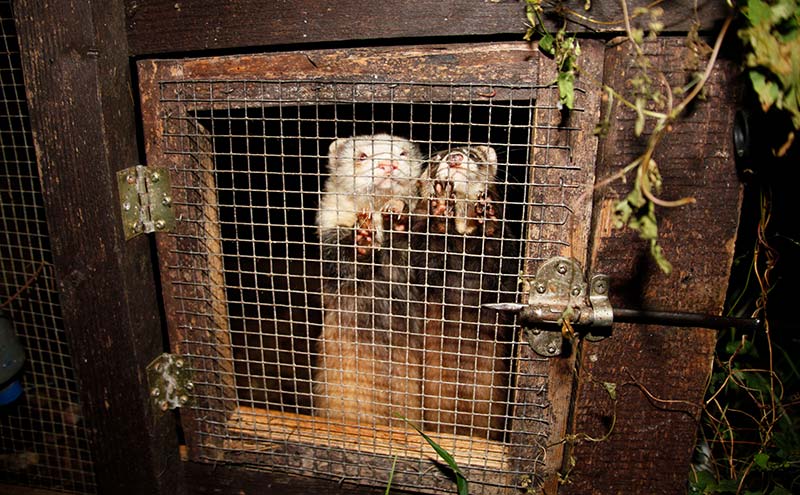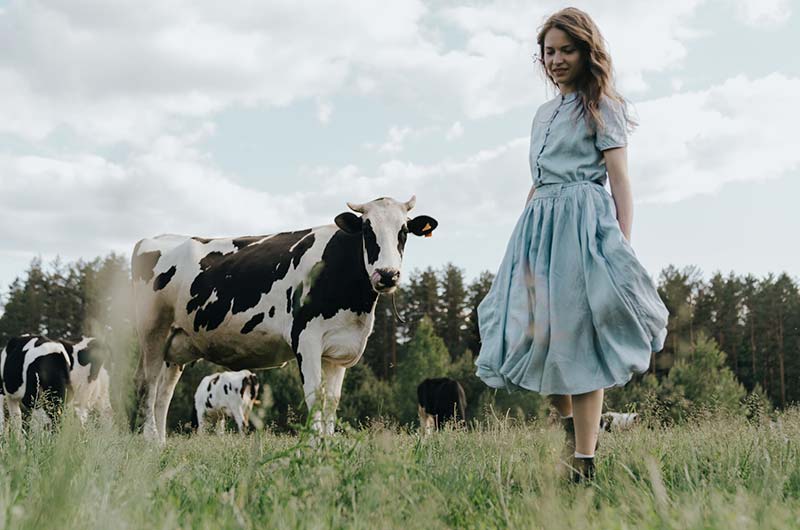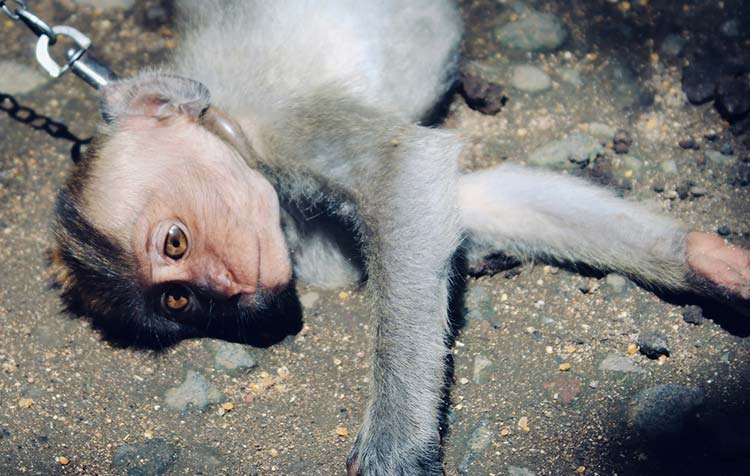Are you wondering right now if animals feel pain like we humans do? I would like to give you the answer in this article! Pain is a signal from the body that there is a problem that needs to be taken care of. On the basis of facial expressions, gestures and language, we can quickly recognize whether one of our fellow species is experiencing corresponding suffering. But with animals, this is a bit more difficult. We cannot read their facial expressions and gestures as well as our own. And we don't speak their language either.
Here I would like to clarify once and for all whether animals feel pain, just like we humans do. I will also go into why we ask ourselves this question in the first place.
Why do we even wonder if animals feel pain?
Being human means showing mercy, helpfulness, kindness, friendliness and compassion. Do animals feel pain? If we always behaved humanely, this question would basically be completely superfluous. We would simply treat them all humanely. Just as we ourselves would want to be treated.
But we usually do not behave humanly - and know that. We know that we torture and kill animals to eat them. That they are trained so that they can jump through burning hoops for us in the Manage. That we conduct experiments on them to gain knowledge for our continued existence. That we build our roads, rails and houses in their habitats. And that we pull the fur over their ears to make beautiful coats out of them.
Perhaps because of all these cruel acts, we simply wonder if animals feel pain. And maybe we fervently wish it wasn't the case, so we can just keep doing what we're doing. And if they do feel pain, in the meantime, to be on the safe side, we just talk about humane slaughter in factory farming.
We come across a cognitive dissonance - an internal contradiction. We love animals, but we also eat them. So the question "do animals feel pain?" is one we ask ourselves primarily in order to sleep better to be able But actually we already know the answer.
Are you also against animal cruelty?

It is difficult for us to watch when someone kicks a dog. No matter whether it is our own dog or a complete stranger. We would like to free caged animals. Also the Dominion film, which shows the daily suffering of cows, pigs and other animals in the Factory Farming shows, is extremely close to us. Nevertheless, we pay money for the products that come from this industry - and in return we also take the cruelty to animals in purchase.
Almost every person would probably claim to be against animal cruelty. You too? If yes: why are you against cruelty to animals? If animals didn't feel pain, you couldn't care less, could you? But for some reason we all care. In Germany, cruelty to animals is even severely punished!
So we have known for a long time that Animals sentient beings are and feel pain - We don't really have to ask ourselves the initial question anymore.
None of us wants to be tortured - and few of us want it to happen to other sentient beings. But if we don't see the suffering of animals, we'll gladly make an exception for a juicy steak. Or how do you see it?
But do animals feel pain in exactly the same way as humans?
Many people justify meat consumption or wearing fur clothing by saying that animals do not feel pain. We hold: they do feel pain. Mostly, the argument is then continued: "But they don't feel pain the way we do." - is that right?
We humans have a Pain perception. If a snake bites us, nerves in our skin transmit the information to the spinal cord. Motor neurons then ensure that we pull our arm away as quickly as possible and flee. Animals also have this so-called nociception - without pain perception, they would ultimately not be able to survive.
But we humans also have another Pain recognition. The snake bites us and the pain information is transmitted to the brain via the spinal cord. Fear, panic and stress are triggered. We remember these painful experiences and try to avoid them in the future. However, this knowledge is somewhat more difficult to assign to animals, since very few of them can show us what they are feeling.₁
All mammals have a central nervous system with which they feel pain
Basically, it has been proven that mammals all have the same nervous system with the same neurochemicals, sensations and emotions.₂ Most animals show escape behavior and a will to survive. This suggests that they want to avoid pain and suffering and that they are aware of the danger to their lives. This is true for cows, pigs and chickens in factory farming, as well as for antelopes and seals. But also reptiles, amphibians and fish have the necessary neuroanatomy for pain perception and pain awareness.
Injured animals lick their wounds, tremble, make unusual sounds or withdraw for a while. Wolves, for example, try not to show pain in order to continue to be accepted in the pack. In addition, there is the emotional suffering: for example, when cows are locked up in dark stalls without daylight or are separated from their calves. Or when mistresses and masters leave their dogs alone for a long time. We humans also show at least comparable reactions to physical and emotional painwhich supports the assumption that animals feel similar or even the same suffering as we do.
But we humans know that the pain will end as soon as we are treated in the hospital. Animals, however, do not have this reassuring information. So their physical and emotional pain may well be worse than ours. We don't know for sure. But it also doesn't matter how much pain animals feel. What matters is that they feel pain. Our moral compass tells us that we should not cause suffering to other living beings unless it is inevitable and absolutely essential for our survival.
Animals therefore have a perception of pain and most probably also a recognition of pain. But the more different the animal is from us, the more difficult it is for us to determine from external characteristics whether it feels pain.
The final argument: "But plants have feelings too!"
Animals probably feel pain pretty much the same way we humans do. However, the cognitive dissonance then makes many of us resort to the extreme argument to justify habits associated with animal suffering: Do plants have feelings?!
There is no scientist on this earth who could prove that plants have a central nervous system that could indicate a sense of pain. Plants simply show biochemical reactions, for example, when they align themselves to the sun. Animals, on the other hand, certainly have a world of feelings and a sense of pain. But even if there is this one scientist at some point: those who continue to be meat, because plants also have feelings, should stop eating meat all the more. Because for animal feed, which is necessary to produce meat, still significantly more plants "die".
Tip: Let's just consume the plants directly so as not to cause pain to animals and to consume as few plants as possible. More about my Reasons for the vegan lifestyleyou can read in the linked article.
ANIMALS FEEL PAIN - WHAT DO WE DO WITH THIS KNOWLEDGE?

So animals feel pain. Nevertheless, we argue ourselves out of our minds in order to somehow justify our habits. And that, although we actually know better.
"Okay. I understand about the plants. But what if eager experts eventually figure out that science was wrong and animals do feel (almost) no pain after all?" Well, then we would have stopped torturing and killing innocent, lovable and unique animals for nothing. But we would be quite annoyed.₃
Even if animals did not feel pain, that would still not be a reason to torture, hurt and kill them. Do you see it that way? We should use this knowledge to bring our values back into line with our actions. And who knows: maybe someday we'll live in a world where we don't inflict unnecessary pain on animals. Maybe. Hope dies last.
Do you have any questions or suggestions about this article on the pain perception of animals? Then, as always, feel free to write me a comment!
Be always kind to animals,

PS.: Feel free to look around a bit more in the animal welfare blog um. Find out, for example, what speaks in favor of our People actually not carnivores are.
References:
₁ TED-Ed: How do animals feel pain? - Robyn J. Crook, YouTube, Jan. 17, 2017, web, May 16, 2021 at 08:54 a.m., in: https://www.youtube.com/watch?v=5j9Syov0AAw&t=151s.
₂ Liz Langley, National Geographic: Do animals feel pain the way we do? (Accessed 05 Nov. 2020), available at https://t1p.de/zxa3. [20.05.2021].
₃ Allusion to quote from cabaret artist Marc-Uwe Kling.






